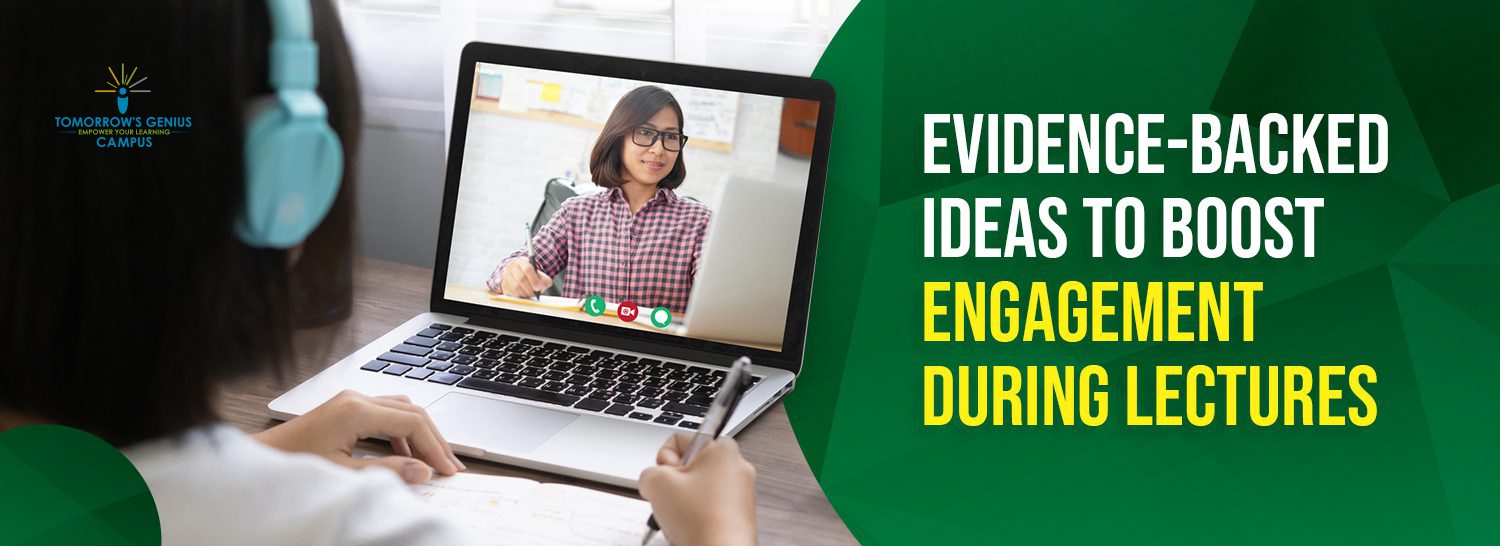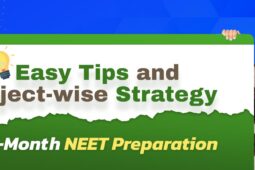Evidence-Backed Ideas to Boost Engagement During Lectures
Educators and learners alike continuously hunt for strategies to ace their online classes. Most often, students view lectures as monotonous and boring. But they are one of the best tools to help students understand complex subjects, educators need to think outside the box. Let’s look at lecture strategies that can Boost Engagement During Lectures:
Evidence-Backed Ideas to Boost Engagement During Lectures
Reviewing Background Knowledge
Have you ever paid attention to a class if you had no idea what was happening? In 2019, researchers discovered that learners needed a basic amount of information to engage with a topic. According to research, if students are unfamiliar with 59% of terms, they cannot comprehend the content. The basic knowledge required came to be known as a knowledge threshold. As an online educator, you need to review some background information before your lecture. Introduce new topics slowly while relating them to older concepts. Once you fulfill the knowledge threshold, you will likely engage with more learners.
Taking Breaks
 If you have to deliver a long explanation, you must remember to take breaks. The longer you speak, the less your student’s pay attention. In 2016, studies found that children in elementary school tune out after 10 minutes. Learners in middle or high school paid attention for a little longer, but not much. If your lecture starts getting heavy, take a break. You can incorporate brain breaks into your class as well. For example, pausing the story to stimulate conversation works wonders. In fact, in 2021, a team of neuroscientists stated that almost all learning happens offline during downtime. Asking them to discuss a fascinating point in your lecture can increase their interest. Make sure you give your students short breaks to boost engagement during lectures.
If you have to deliver a long explanation, you must remember to take breaks. The longer you speak, the less your student’s pay attention. In 2016, studies found that children in elementary school tune out after 10 minutes. Learners in middle or high school paid attention for a little longer, but not much. If your lecture starts getting heavy, take a break. You can incorporate brain breaks into your class as well. For example, pausing the story to stimulate conversation works wonders. In fact, in 2021, a team of neuroscientists stated that almost all learning happens offline during downtime. Asking them to discuss a fascinating point in your lecture can increase their interest. Make sure you give your students short breaks to boost engagement during lectures.
Checking In
During your lecture, you must take a few minutes to ask if your students understand. You can try a short assessment to identify any gaps. In 2014, researchers discovered the usefulness of practice tests. Middle and high school students who completed short quizzes after a class performed 18% better than learners who did not. As per a 2013 study, educators must include a mix of simple and complex questions. By doing this, educators avoid intimidating students.
Take It Slow
 Many educators make one crucial mistake. They assume their students can move at their pace. As an expert, you have a better understanding of the topic. To boost engagement during lectures, you must pace yourself. Remember, a 2018 study found that students feel strained and stressed when presented with high volumes of new information. Move slowly and allow your students to grasp each concept before you continue. By keeping every learner’s pace in mind, you create accessible online learning classes.
Many educators make one crucial mistake. They assume their students can move at their pace. As an expert, you have a better understanding of the topic. To boost engagement during lectures, you must pace yourself. Remember, a 2018 study found that students feel strained and stressed when presented with high volumes of new information. Move slowly and allow your students to grasp each concept before you continue. By keeping every learner’s pace in mind, you create accessible online learning classes.
If you’re ready to boost engagement in your online lectures, you can register with TG Campus. Our state-of-the-art platform provides every tool required to enhance retention. You can use these science-backed ideas to build immersive online experiences that engage every learner.















Leave a Comment